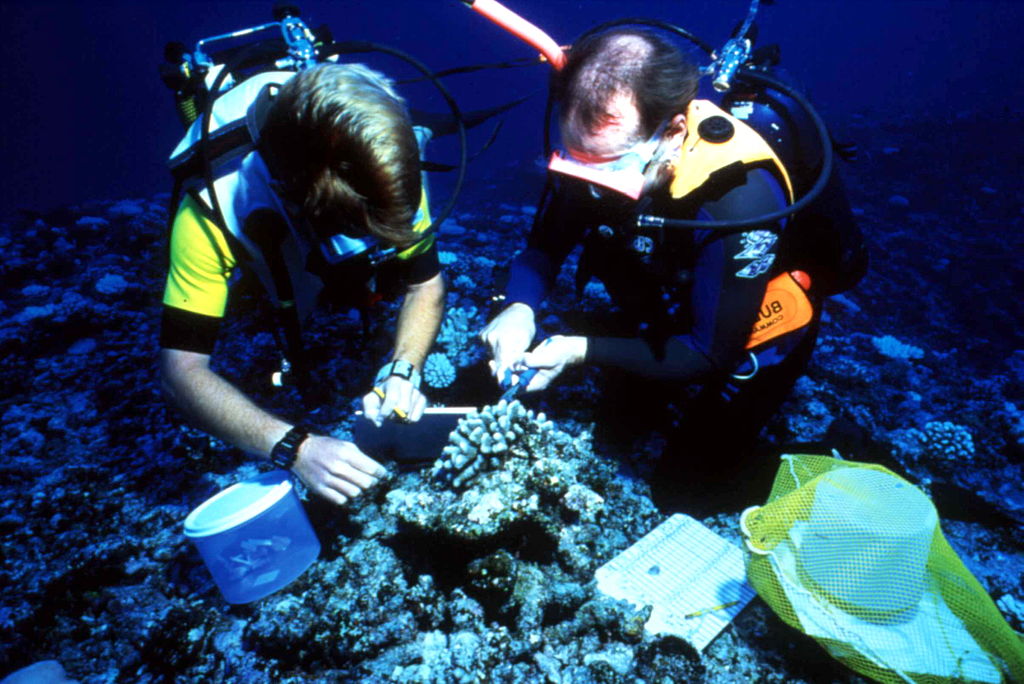The Great Barrier Reef is now at a 'terminal stage'


A free daily email with the biggest news stories of the day – and the best features from TheWeek.com
You are now subscribed
Your newsletter sign-up was successful
Australia's Great Barrier Reef is experiencing a second devastating coral bleaching event on the heels of an unprecedented bleaching in 2016, leaving the reef with little chance of surviving, CNN reports. The reef is now in a "terminal stage," water quality expert Jon Brodie told The Guardian.
Bleaching occurs when seawater warms up and the algae that normally grows inside coral is expelled, turning it white. Algae serves as the energy source for reefs, so if the temperatures remain high and a reef does not have a chance to recover, it effectively dies, eliminating a unique habitat for many marine animals.
“I don't think the Great Barrier Reef will ever again be as great as it used to be — at least not in our lifetimes," the National Oceanic and Atmospheric Administration's C. Mark Eakin told The New York Times in a March report.
The Week
Escape your echo chamber. Get the facts behind the news, plus analysis from multiple perspectives.

Sign up for The Week's Free Newsletters
From our morning news briefing to a weekly Good News Newsletter, get the best of The Week delivered directly to your inbox.
From our morning news briefing to a weekly Good News Newsletter, get the best of The Week delivered directly to your inbox.
Before the bleaching events in 2016 and 2017, there had only been two other similar incidents in the known history of the Great Barrier Reef, in 1998 and 2002. This time, a survey shows that two-thirds of the reef is affected. "You've got to be optimistic. I think we have to be," said Jon Day of the Great Barrier Reef Marine Park Authority. "But every moment we waste, and every dollar we waste, isn't helping the issue. We've been denying it for so long, and now we're starting to accept it."
Others do not share Day's hope. "We've given up. It's been my life managing water quality, we've failed," Brodie said. "Even though we've spent a lot of money, we've had no success." Jeva Lange
A free daily email with the biggest news stories of the day – and the best features from TheWeek.com
Jeva Lange was the executive editor at TheWeek.com. She formerly served as The Week's deputy editor and culture critic. She is also a contributor to Screen Slate, and her writing has appeared in The New York Daily News, The Awl, Vice, and Gothamist, among other publications. Jeva lives in New York City. Follow her on Twitter.
-
 The Week contest: AI bellyaching
The Week contest: AI bellyachingPuzzles and Quizzes
-
 Political cartoons for February 18
Political cartoons for February 18Cartoons Wednesday’s political cartoons include the DOW, human replacement, and more
-
 The best music tours to book in 2026
The best music tours to book in 2026The Week Recommends Must-see live shows to catch this year from Lily Allen to Florence + The Machine
-
 Nobody seems surprised Wagner's Prigozhin died under suspicious circumstances
Nobody seems surprised Wagner's Prigozhin died under suspicious circumstancesSpeed Read
-
 Western mountain climbers allegedly left Pakistani porter to die on K2
Western mountain climbers allegedly left Pakistani porter to die on K2Speed Read
-
 'Circular saw blades' divide controversial Rio Grande buoys installed by Texas governor
'Circular saw blades' divide controversial Rio Grande buoys installed by Texas governorSpeed Read
-
 Los Angeles city workers stage 1-day walkout over labor conditions
Los Angeles city workers stage 1-day walkout over labor conditionsSpeed Read
-
 Mega Millions jackpot climbs to an estimated $1.55 billion
Mega Millions jackpot climbs to an estimated $1.55 billionSpeed Read
-
 Bangladesh dealing with worst dengue fever outbreak on record
Bangladesh dealing with worst dengue fever outbreak on recordSpeed Read
-
 Glacial outburst flooding in Juneau destroys homes
Glacial outburst flooding in Juneau destroys homesSpeed Read
-
 Scotland seeking 'monster hunters' to search for fabled Loch Ness creature
Scotland seeking 'monster hunters' to search for fabled Loch Ness creatureSpeed Read
